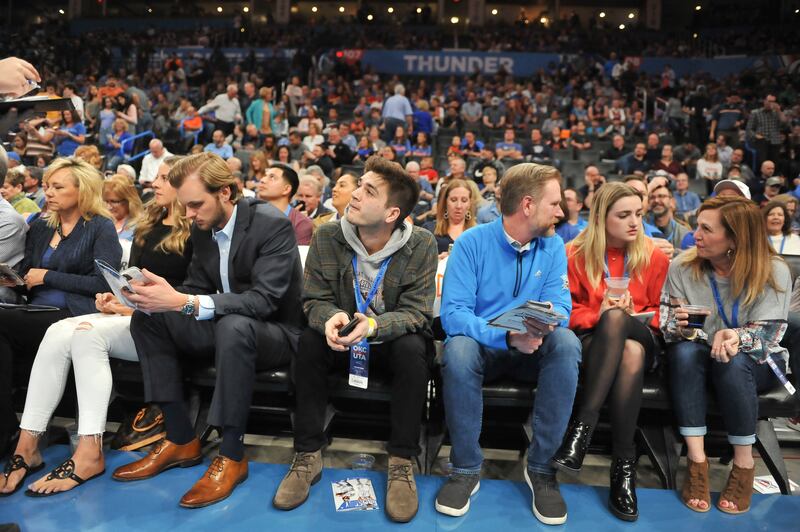When the Utah Jazz played the Oklahoma City Thunder in the NBA Orlando Bubble on Aug. 1, 2020, it was billed as ‘the game that never happened’ since it was a matchup between the two teams at the center of the league’s March 11 shutdown.
But the game in Orlando didn’t feel like it was a replay of the one that was halted after Rudy Gobert became the first NBA player to test positive for COVID-19.
On Dec. 28, 2020, the Jazz returned to Oklahoma City for the first time since March 11. The game was again billed as ‘the one that got away’ and a rematch of the ill-fated game that never took place. But this time there were no fans in the building.
The same was true when the Jazz visited the Thunder again on May 14, 2021. The Jazz played in an empty arena. The starters were announced with zero fanfare and with music echoing eerily through the open gym. So, rather than replaying the game that never happened, those games only served as reminders of how far away we were from life having any semblance of normalcy.
When the Jazz were set to play the Thunder, in a full arena, on March 6, 2022, almost exactly two years from the date that the NBA world stopped, it seemed like it was finally a chance for the Jazz to play the game that never happened. This would be the one.
There weren’t any big acknowledgements of the game’s significance, nothing on the screens in the arena remembering that night back in 2020 and the players didn’t seem interested in rehashing what had happened in OKC two years ago.
I get it. It’s hard to really look at anything as a rematch from something that happened pre-COVID-19 because it’s hard to think about doing anything in exactly the same way that we did pre-COVID-19.
Yes, the Jazz went out onto the court in OKC and listened to the announcement of the starters’ names and heard the buzz of the crowd just as they had two years ago before the night went sideways. But there are so many differences.
Players wear masks on the bench. They are acutely aware of vaccine dates and how often they have to be tested and what things like cycle thresholds are. They wash their hands more than they ever have and there are different hygiene practices to follow in each of the 29 NBA arenas. I don’t think Gobert or Donovan Mitchell have seen my unmasked face in person in two years and I talk to them nearly every day.
You can’t really muster up the energy to say that things have moved on if you go into an interview room full of reporters wearing masks after a game.
It’s possible that things are never going to return to normal in the way that we hoped they would when this all first started. It’s very possible that things in the NBA have changed forever.
The NBA’s rules continue to bend and change regarding length of health and safety protocol, how replacement players are signed, how long they can be signed for and how two-way players can be utilized. All of that has changed and will continue to change because of COVID-19.
How we evaluate games has changed. When players are unable to play after testing positive for the coronavirus, the NBA’s schedule does not relent. If a team has a string of losses, the first thing to do is not consult the box scores and find a common thread in the on-court mistakes, but to consult the injury report to see who was missing due to COVID-19.
There’s a high probability that there will still be rules and regulations in place next season and the seasons that follow that are born out of the first couple of years of living with COVID-19, and there are probably rules that haven’t been conceived yet.
When the Jazz head to Oklahoma City in the 2022-23 season, there will probably be some momentary reminiscing, but we probably aren’t going to ever recapture the feeling that everyone had on March 11, 2020, because so much has happened and so much has changed.


